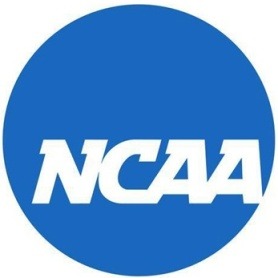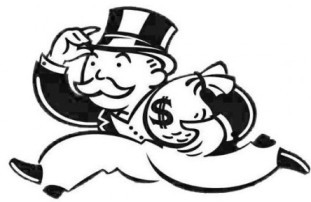
Note: When I mention “college sports” in this article, I am talking about sports at major Division I programs. The Alabamas and Notre Dames of the world, not the Claremont Mckennas. The difference between the athletic-academic-financial atmosphere at major D1 schools and everywhere else is a chasm. To paraphrase Shannon Sharpe, it’s like comparing “Titanic” and “Dude, Where’s My Car?”—not in the same league (pun intended).
I will not waste time belaboring this distinction in the article, so don’t bother arguing how things at [insert your favorite college] are different—I am well aware of this.
Earlier this month, a federal judge ruled that preventing NCAA athletes from making money off their names and likenesses was a violation of anti-trust law.
Amateur athletics are big business. The feeder systems for the NCAA, The Amateur Athletic Union (AAU) and other loosely-regulated youth organizations, are rife with corruption and ignoble priorities. Physical and moral development of the kids often take a back seat to sneaker dollars and egos, robbing kids of the experiences that prepare them for life beyond the playing field.
The gravy train starts as early as middle school, where thinly-veiled diploma mills are developing the next wave of prep-to-pros.
Many parents are complicit, willing to mortgage their kid’s education for a better shot at athletic stardom. They see sports as one of the few escape routes from poverty for their families (a sad, but not unpredictable notion).
The sham that is Amateurism is on display once again. The NCAA is a tax-exempt organization, despite the billions of dollars they generate from their workforce (read: NCAA athletes).
The Ed O’bannon ruling may change all of that.
As expected, this triggered an outpour of commentary, some of which I’ll address in this post.
I’ve tackled silly statements by sports fans before:
Mating Calls of The Irrational Sports Fan: Lebron edition
This is Mating Calls of the Irrational Sports Fan: NCAA Edition.
1) “You shouldn’t pay college kids to play a sport. They’re amateurs.”
I don’t have a strong opinion on this. Schools can decide if they want to pay their players directly.
What I do have a problem with is preventing athletes from being compensated by other people. Autograph signings, paid appearances etc., if there are people who want to pay them for their skills, there’s no reason why this should be prohibited.
Really, there’s no moral justification for preventing players from making money off their name. They generate a ton of money for the school and no other students—not musicians, not entrepreneurs, not researchers—are restricted by this policy.
You publish an acclaimed paper while doing research in the student lab—you can accept prestigious speaking opportunities. You’re the first chair of the saxophone section at a major university? Take that well-paying gig at Carnegie Hall. But if you play on the football team and want to trade your practice jersey for $500, all hell breaks loose.
It’s ridiculous.
NCAA rules place strict limits on student employment as well, so many of the work-study and part-time opportunities available to the typical student are closed to athletes. They’ve got fewer ways to defray the costs of student living, making the NCAA’s limit on outside compensation even more unseemly.
Open your eyes. There’s a reason coaches are making several million dollars a year to coach for big-time programs. Nine-figure television contracts, 100,000-seat stadiums. You can’t tell me the players aren’t responsible for most of the money in athletics.
At the very least, players should have school-funded health insurance for some period after they leave the university, given the inherent danger of playing certain sports. The NCAA needs to be shamed into doing the right thing.
2) “I’d be willing to play for free. 99% of the people in the world would be happy to play a game in exchange for free tuition.”
I covered this point in a previous edition of this series.
99% of the people don’t have the skills and ability to do what these players do, so this line of thinking is erroneous. As noted NCAA critic Jay Bilas routinely points out, the NCAA makes a ton of money on the backs of players.
Mark Emmert (current NCAA president) and his NCAA lackeys are phonies. Anyone who supports the NCAA’s stance on this matter under the guise of protecting students or “amateurism” is part of the problem.
Some of that support may be the result of the “Bigotry of Low Expectations”. Society expects less from minority students (who represent a sizable chunk of the star players in basketball and football). People won’t come out and say it, but it’s clear by their actions. They excuse away bad behavior they’d never let their own family members get away with. Because people expect less from you, you do less, content to coast on the misguided graces of the people around you.
It’s a nasty self-fulfilling prophecy.
Some critics think (black) players need to worry less about money and more about education.
I understand this point of view.
There are athletes who perpetuate the “dumb jock” stereotype with an over-reliance on slang and broken english. Their speech reflects poorly on their families and any of their teachers, through grade school and at the college level, who let them get away with it.
The NCAA trips over itself trying to prove it champions scholastic achievement with those stupid commercials telling us that “most student-athletes go pro in something else”. If their priority was education, they wouldn’t allow schools to change conferences or schedule tournaments during exam periods.
Their continued defense of “amateurism” is a shameful, self-serving attempt to protect their coffers.
3) “If you’re going to pay college players, charge them for room, board, and all the other expenses for attending college.”
These players aren’t getting a free ride.
Playing on a college sports team—especially football—is a full-time job. They spend 20+ hours a week in practice, meetings, working out to stay prepared for games, travel—it’s time-consuming. And if they don’t perform well their scholarships can be revoked.
Most of the expenses players generate are just costs the college pays to itself. Tuition, room/board etc. are fees that go to the college, so there’s no real loss of money there. Again, these schools make billions off the work of the athletes.The costs of a player attending a school is just a cost of doing business for these “non-profit” institutions.
“But the kids are there to go to school. We have to protect them from the dark side of the sports business.”
The NCAA has long vacated the moral high-ground on education. Kids traveling cross-country several times a semester to play games. Schools shuffling conferences like it’s a game of musical chairs, to vie for media visibility and advertising dollars. When you’ve got teams in Nebraska fleeing to join the Big East Conference, claims of “this is about protecting the children” are indefensible.
“But Kene, they accepted $40,000 scholarships. They need to perform.”
Zealotry and gambling pervade amateur sports.
In certain pockets of the country, sports are a matter of life and death. A quick scan of any SEC message board will show you as much. You’d think missing a field goal or clanking a free throw were tantamount to bombing an orphanage. Idiots in newspapers and sports message boards treat them like professional athletes. Heckling of 19-year olds who drop passes or miss free throws is not uncommon in print and in stadiums.
Would we tolerate this level of vitriol at a local middle school game?
Apparently, NCAA players are old enough to be heckled, but not old enough to make money outside of school?
Either they’re full-brown professional athletes or they’re not; you can’t have it both ways.
And do the schools make sure that the kids actually get a good education?
Nope.
College athletes spend 20+ hours a week preparing for and playing games. I’m not condoning the behavior and ideology of college athletes who flout academics , but I understand it. Most big-time schools don’t care what the kids do on campus as long as they’re producing on the field and court.
Heck, they go out of their way to cover up the misdeeds of their star players. Whatever it takes to protect the money-printing machine that is big-time “amateur” athletics.
Every now and then, the NCAA puts on a dog-and-pony show to show how much they care about “integrity” and the “importance of academics” with excessive discipline in a high-profile case, but don’t be fooled. They really don’t care if the kids attend class as long as they’re making money for the university.
But hey! It’s all about the students, right?
The level of self-righteousness and hypocrisy by the NCAA is enough to make Ashton Kutcher sick.

The NCAA wants to treat amateurism like a children’s game; they own all the money.
4) “If you pay some players, you have to pay all student-athletes.”
Wrong.
I’m not an ardent supporter of the “schools ought to pay college players” movement, but if they did, it should only be those in revenue-generating sports (basketball and football).
Most sports teams at NCAA schools lose money. Their participation is subsidized by the two big-ticket sports, basketball and football.
There’s no reason to pay some tennis player who is producing zero revenue for the school. They already get paid, really, because their sport is subsidized by basketball and football. Without the money generated by the big sports teams, they might not even be playing.
If the O’Bannon ruling opens up a new pool of money to student-athletes shouldn’t it go to the people generating it? Last I checked, they weren’t showing Badminton on New Year’s day on ABC.
5) “Athletes take away scholarships from kids who need them.”
I will side with big-time college athletics on this point:
Athletic scholarships do not deplete the general pool of scholarship funds.
The scholarships that these major college programs hand out to star recruits come from a separate pool of money, money generated from ticket and merchandise sales.
If anything, big-time athletics create more at-large scholarships for the university, not less. They fund many of the other sports teams (which usually represent a net-loss of revenue for colleges) as well as attract donations from rich alumni. The school reaps a multitude of benefits, including increased enrollment and the financial and political support of neighboring communities.
SEC football doesn’t just build stadiums; they build campus research facilities, too.
I always chuckle when I see academics and Ivy Tower analysts call for de-emphasis of sports fandom. Sports have their ills, but they do a lot of good for their communities.
We don’t live in a zero-sum world; more dollars and attention spent on athletics does not mean fewer resources for academics.
People who decry America’s obsession with sports often skew elitist, belying a sense that fans and participants aren’t smart enough to engage in more fruitful pursuits. They dismiss sports as an activity that provides less value than reading a novel, taking in a play, or visiting a museum. It’s similar to people who claim they’re free-thinkers and cherish creativity, but get angry if you don’t share their tastes in music or fashion; it’s high handed, self-involvement.
I’d bet dollars to donuts that they’re the same people who think junk food should be taxed.
I don’t watch a lick of college sports. I just know enough about the business of sport to spot nonsense when I see it. I’m aware of the politics at play with the debate on college athlete compensation; no one said this would be easy. But if we are putting this on the table, lazy, half-baked thinking should be chucked out the window.
